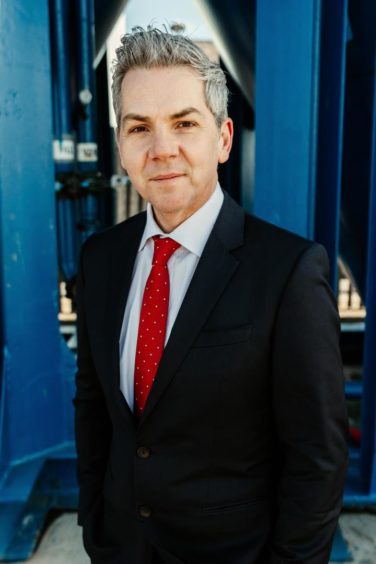
Two weeks from today, I’ll have the pleasure of taking part in Decom North Sea’s inaugural Decom Week.
Just a few weeks into my tenure as CEO, this couldn’t have come at a better time. Not only does it allow for my (on-screen) introduction to the wider decom audience, but the agenda is a pragmatic, wide-ranging reflection of the current decommissioning climate, the sector and cross-sector opportunities just over the horizon, the export potential of our decommissioning skills and – highly significant for me and for our members – the development of Decom North Sea (DNS) as the one true voice of the decommissioning sector.
Whilst all organisations have had to develop in one way or another over the past year, DNS has done so much more than simply shift to an online environment. I spoke to my predecessor, interim managing director Will Rowley, to find out what’s changed across the decommissioning sector and the impact that’s had on DNS, specifically.
Top of Will’s list were the challenging circumstances in which decommissioning finds itself. Whilst not unique to the decom sector, project deferrals and significant uncertainty around the future abound. Will believes that, undoubtedly, events of 2020 have engendered a new feeling of community with the sector and wider industry which was previously lacking, and I am convinced that DNS’ actions have drawn our membership closer together than ever before by turning up the dial on our guidance and support.
DNS’ immediate response to the circumstances of early 2020 was to kick-start a programme of genuinely practical help and advice – from webinars on numerous topics, to access to opportunities which may have gone unnoticed by our members. A great example of the latter is our partnership with the European Space Agency. Proactively pursued by DNS during spring 2020, this resulted in not one, but two member companies to date being awarded cross-sector research funding.
In other words, an effective membership organisation cannot base itself on rhetoric alone. Rather, it’s about understanding members’ capabilities and challenges, facilitating tangible outcomes which raise their profiles and ultimately win work. In this, DNS now excels. I know, because I’ve been speaking to members recently, and their feedback on the value we create is in stark contrast to a survey undertaken a year ago, which told us that members were struggling to identify that value.
Important to us, and critical to the support we give our members, is DNS’ increasing influence within the energy sector and amongst governing bodies. We’ve worked hard over the past 12 months to ensure we’re representing our members at the highest level on practical matters – for example, pressing the case for early tax relief payments – illustrating our determination to ensure our sector survives and thrives.
So what lies ahead for DNS? Unsurprisingly, the energy transition rates highly on our agenda: what does that mean for our sector and jobs? We are working closely with the Scottish Government and Skills Development Scotland to ensure that support for effective cross-sector training and development is available.
We’re also looking at the phenomenon which is “hidden” decommissioning work; that which often doesn’t fall within a decommissioning plan and is classified as “operations”, despite accounting for around a third of all decom activity. We’re investigating the value in recognising this work as we believe that in doing so, we could be opening up additional skills transfer and export opportunities – two critical elements for the survival of the sector and the safeguarding of jobs.
And that’s our ultimate objective; to protect the interests of our members by protecting the longevity of the industry. It may be within the UK, it may be overseas; it may be within the transitioning energy industry, or it may be within another industry altogether. Regardless, the objective remains constant and I look forward to being a part of it.
To book a space at Decom Week 2021, visit https://hopin.com/events/decom-week-2021
Recommended for you
